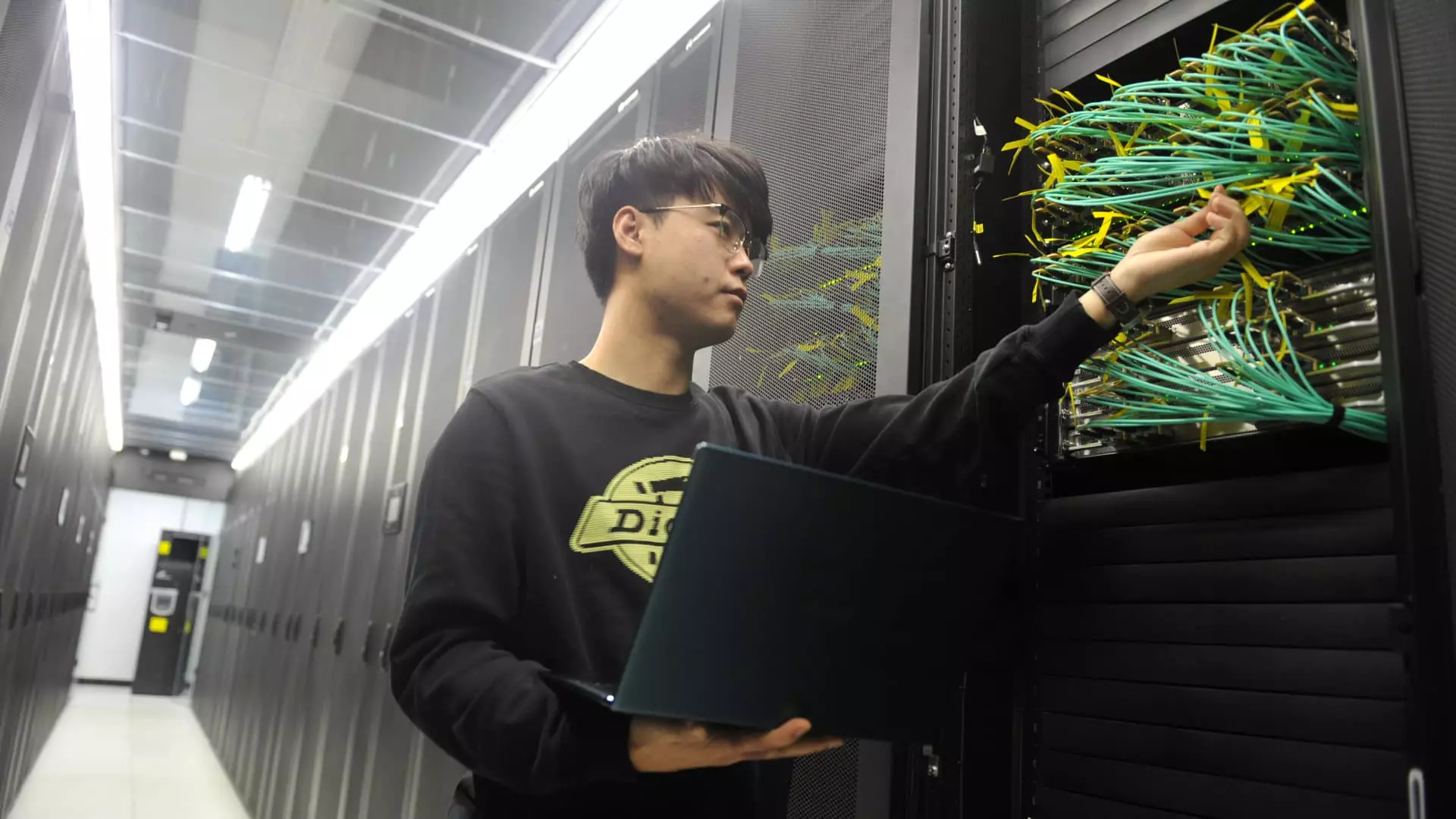The ongoing U.S.-China trade tensions present a paradoxical landscape in which adversity can cultivate unprecedented opportunities for innovation. Several analysts highlight the potential for select Chinese firms to thrive as the nation pivots towards generative artificial intelligence (AI). As corporations scramble to integrate AI technologies into their workflows, the narrative shifts from mere survival to groundbreaking growth. Despite the stresses initiated by external pressures—most notably tariffs—this critical juncture may ignite a renaissance for businesses willing to harness the power of AI.
Analysts from Bernstein, including Boris Van, assert that the burgeoning demand for AI will not wane even as costs soften, hence giving companies the impetus to redouble their investments in AI technologies. As firms venture into this new territory, we can expect remarkable advancements in operational efficiency and effectiveness. The imperative to evolve in the face of competition is palpable, particularly as local management systems gain traction in this rapidly changing commercial arena.
The Role of Government Initiatives
Strategic government incentives play a vital role in shaping corporate behavior within the context of a trade war. Just as previous administrations employed localization policies to blunt the tariff impacts during Donald Trump’s presidency, current Chinese leadership is likely to galvanize the AI and chip ecosystems as tools of economic resilience. By showcasing homegrown solutions, like Huawei’s technological advancements, the government could inspire confidence while fortifying its industrial base against global uncertainties.
The landscape is pregnant with possibilities—particularly when one considers the potential growth of localized enterprises like Kingsoft Office and Kingdee. These companies are rapidly evolving from traditional software providers to pivotal players in AI integration. Kingsoft’s ambitious venture into cloud computing and AI services signals a broader effort aimed at redefining market leadership within China. Their AI-empowered word-processing application, WPS, is not just a product; it’s a symbol of the new era of technological innovation that China is striving for.
Corporate Earnings: A Turning Point on the Horizon
With corporate earnings long stymied by external pressures, the tides may be turning favorable through AI application. Recent reports indicate significant cost savings and efficiency gains tied to AI integration, prompting optimism among corporate strategists. As companies like Kingsoft and Kingdee attract new clientele, including high-profile entities such as Geely and Kweichow Moutai, the potential for restoration and growth becomes tangible. The enthusiasm for AI-driven solutions demonstrates a collective recognition of their strategic importance—challenging conventional economic wisdom that oil and trade reserves reign supreme.
Even amid tumult, the forecast for China’s AI spending remains robust, projected to expand by 25% annually according to the Economist Intelligence Unit. This actual growth could very well offset the adverse effects of tariffs on the broader economy. Companies are increasingly recognizing that, while tariffs represent immediate challenges, innovation through AI could be the best antidote to stagnation, injecting fresh vigor into corporate earnings.
The Cloud Computing Surge
Another sector experiencing a remarkable surge is that of cloud computing and internet data centers (IDCs). Analysts from Nomura have identified this category as particularly resilient against the tumultuous backdrop of tariff negotiations. Firms such as China Mobile, GDS, and Vnet are prime examples of how the domestic demand for cloud services remains unconstrained, even as international tensions loom on the horizon. The projected growth rates highlight burgeoning needs for data infrastructure and digital services, offering a haven for investment amidst geopolitical strife.
The implications are two-fold: not only does this create space for growth disconnected from global trade pressures, but it also lays the groundwork for an emerging domestic tech ecosystem unfettered by the dependencies that have historically tied Chinese firms to the U.S. marketplace. Such self-sufficiency might be the secret weapon for China as it embarks on the quest for technological prowess.
AI: The New Frontier for Chinese Leadership
As tensions with the U.S. escalate, China’s ambition for AI leadership becomes ever more plausible. Instead of retreating, Chinese companies are poised to capitalize on this crisis through technology and innovation. The notion that AI will underpin China’s sustained economic growth resonates strongly among analysts and corporate strategists. By embracing AI, Chinese firms aren’t just adapting; they are redefining the rules of engagement in a highly competitive global environment.
In navigating the complexities of the U.S.-China trade tensions, one perennial truth stands out: adversity can serve as a powerful catalyst for innovation. By leaning into AI development and integration, China may not only weather the storm but harness it to propel its economic and technological ambitions. The stakes are significant, and the actions taken today will echo beyond trade negotiations; they will shape the very fabric of global business for years to come.

